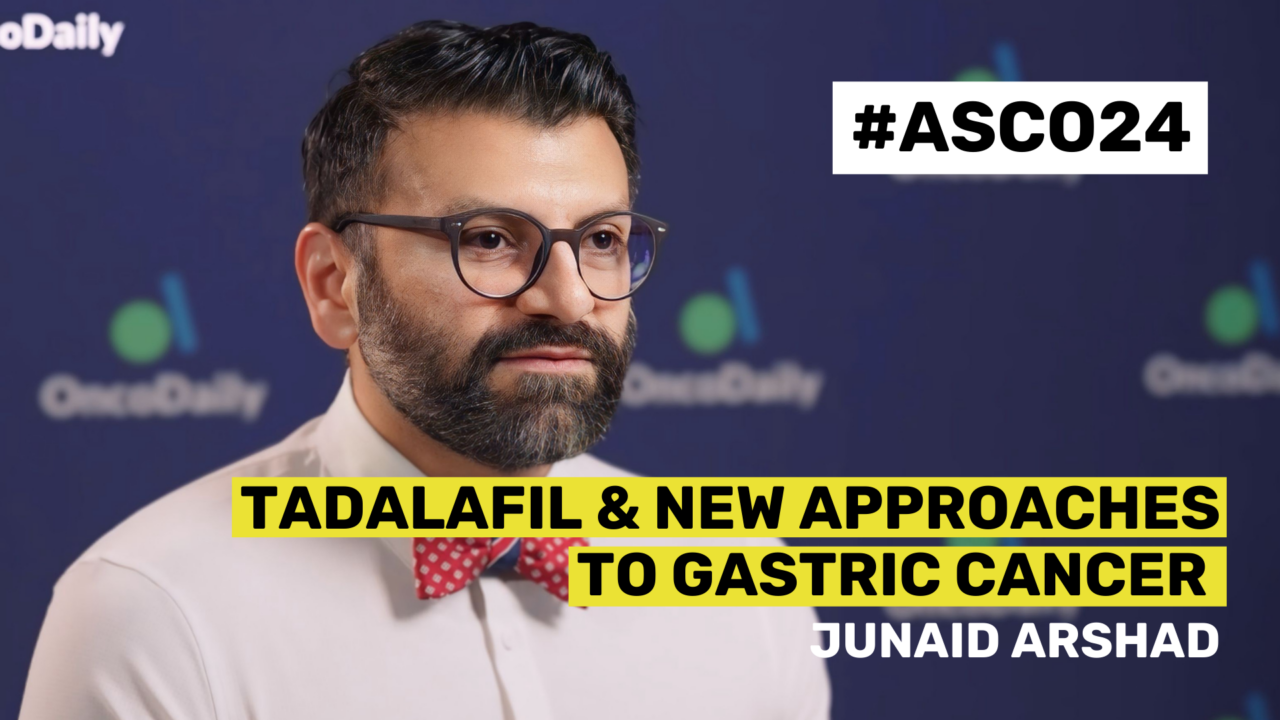The American Society of Clinical Oncology (ASCO) Annual Meeting is one of the largest and most prestigious conferences in the field of oncology. This year, the meeting took place from May 31 to June 4 in Chicago, Illinois. The event gathers oncologists, researchers, and healthcare professionals from around the world to discuss the latest advancements in cancer research, treatment, and patient care. Keynote sessions, research presentations, and panel discussions are typically part of the agenda, providing attendees with valuable insights into emerging trends and innovations in oncology.
This year, OncoDaily was at ASCO 2024 for the first time covering the meeting on-site. We had the pleasure of interviewing researchers who summarized the highlights of their work.
In this video, Dr. Junaid Arshad, Assistant Professor of Medicine at the University of Arizona Cancer Center, shares his insights on ‘Modifying the gastric tumor microenvironment with tadalafil: A transcriptomic analysis of immune signatures from underserved patients of southern Arizona.’
Good morning everyone, my name is Dr. Junaid Arshad. I’m an assistant professor of medicine at University of Arizona Cancer Center. I treat rare tumors including gastroesophageal cancers, gastrointestinal stromal tumors, and neuroendocrine tumors.
And today I’ll be talking about my abstract submitted for ASCO 2024. So we know that gastric cancer is a rising health concern among the minority population of the United States. The high incidence and mortality in gastric cancer is linked to an aggressive disease biology, lack of biomarkers, ineffective treatment options, and of course the underrepresentation of minorities in these gastric cancer clinical trials.
Now the gastric cancer is also on the rise in Arizona, which is influenced likely on the high levels of helicobacter pylori, commonly referred to as H. pylori bacterial infection, which is a strong risk factor for gastric cancer development. The current perioperative treatment regimen of 5-fluorouracil, docetaxel, and oxaliplatin offers suboptimal efficacy and increased recurrence rates, highlighting the obvious need for better treatment options which are biomarker-based and effective especially in minority populations.
The University of Arizona Cancer Center is a state referral center involved in the treatment and therapeutic development of gastric cancer.
So at University of Arizona, we have a study which is an open label phase two single arm window of opportunity clinical trial to study the effect of Tadalafil with or without chemotherapy in patients with early stage 1-3 gastric cancer. This is a clinical and translational project based on the lab data which emerged from Dr. Bonita Merchant’s lab. As part of this trial, we will be enrolling patients who are stage 1-3 gastric cancer to receive two weeks of Tadalafil treatment and eight weeks of combination treatment with Tadalafil and chemotherapy.
Our prior work has shown that helicobacter pylori induces chronic inflammation which leads to metaplasia, dysplasia, and ultimately gastric cancer. And our work in mice has shown that a subset of interferon-derived myeloid cells exhibit T cell expressive function and which are termed as myeloid-derived suppressor cells. These myeloid-derived suppressor cells exhibit slofen-4 gene which is involved in the crosstalk between these myeloid-derived suppressor cells and the gastric epithelium leading to metaplasia, dysplasia, and ultimately gastric cancer.
Now our work has also shown that these myeloid-derived suppressor cells can be targeted with phosphodiesterase inhibitors like sildenafil which can lead to reversal of changes and ultimately can improve the effectiveness of chemotherapy and potentially immunotherapy. Now these myeloid-derived suppressor cells are also found in human gastric cancer but instead of expressing slofen-4 they express slofen-12 gene which is an ortholog of slofen-4. So based on this science we are carrying out this clinical trial at University of Arizona Cancer Center.
We will be collecting blood and tissue at baseline after two weeks of Tadalafil and four weeks of combination treatment. This clinical trial is currently ongoing and based on initial data we have shown that Tadalafil has the ability to eliminate these slofen-12 positive myeloid-derived suppressor cells in human gastric cancers and can relieve the immune expression within the gastric tumor microenvironment.
So the central objective of our current project is to study the effects of Tadalafil on the tumor microenvironment and our long-term goal is to develop a new treatment target which has the potential to improve the overall survival of gastric cancer being studied especially in minority populations.
More videos and content from ASCO 2024 on OncoDaily.


